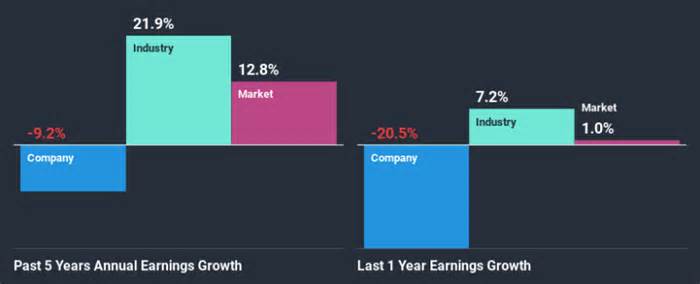“+o.itemList.length+” “+this.config.text.ariaShown+”
“+this.config.text.ariaClosed+”
Nexus Infrastructure (LON:NEXS) has had a rough three months with its share price down 13%. However, stock prices are usually driven by a company’s financials over the long term, which in this case look pretty respectable. Specifically, we decided to study Nexus Infrastructure’s ROE in this article.
ROE or return on equity is a useful tool to assess how effectively a company can generate returns on the investment it received from its shareholders. Simply put, it is used to assess the profitability of a company in relation to its equity capital.
Check out our latest analysis for Nexus Infrastructure
The formula for ROE is:
Return on Equity = Net Profit (from continuing operations) ÷ Shareholders’ Equity
So, based on the above formula, the ROE for Nexus Infrastructure is:
20% = UK£5.0m ÷ UK£25m (Based on the trailing twelve months to March 2020).
The ‘return’ is the amount earned after tax over the last twelve months. That means that for every £1 worth of shareholders’ equity, the company generated £0.20 in profit.
So far, we’ve learned that ROE is a measure of a company’s profitability. We now need to evaluate how much profit the company reinvests or “retains” for future growth which then gives us an idea about the growth potential of the company. Generally speaking, other things being equal, firms with a high return on equity and profit retention, have a higher growth rate than firms that don’t share these attributes.
At first glance, Nexus Infrastructure seems to have a decent ROE. Further, the company’s ROE compares quite favorably to the industry average of 16%. For this reason, Nexus Infrastructure’s five year net income decline of 9.2% raises the question as to why the high ROE didn’t translate into earnings growth. Based on this, we feel that there might be other reasons which haven’t been discussed so far in this article that could be hampering the company’s growth. Such as, the company pays out a huge portion of its earnings as dividends, or is faced with competitive pressures.
So, as a next step, we compared Nexus Infrastructure’s performance against the industry and were disappointed to discover that while the company has been shrinking its earnings, the industry has been growing its earnings at a rate of 22% in the same period.
Earnings growth is a huge factor in stock valuation. What investors need to determine next is if the expected earnings growth, or the lack of it, is already built into the share price. By doing so, they will have an idea if the stock is headed into clear blue waters or if swampy waters await. Is Nexus Infrastructure fairly valued compared to other companies? These 3 valuation measures might help you decide.
In spite of a normal three-year median payout ratio of 40% (that is, a retention ratio of 60%), the fact that Nexus Infrastructure’s earnings have shrunk is quite puzzling. It looks like there might be some other reasons to explain the lack in that respect. For example, the business could be in decline.
Overall, we feel that Nexus Infrastructure certainly does have some positive factors to consider. However, given the high ROE and high profit retention, we would expect the company to be delivering strong earnings growth, but that isn’t the case here. This suggests that there might be some external threat to the business, that’s hampering its growth. While we won’t completely dismiss the company, what we would do, is try to ascertain how risky the business is to make a more informed decision around the company. You can see the 6 risks we have identified for Nexus Infrastructure by visiting our risks dashboard for free on our platform here.
This article by Simply Wall St is general in nature. It does not constitute a recommendation to buy or sell any stock, and does not take account of your objectives, or your financial situation. We aim to bring you long-term focused analysis driven by fundamental data. Note that our analysis may not factor in the latest price-sensitive company announcements or qualitative material. Simply Wall St has no position in any stocks mentioned.Have feedback on this article? Concerned about the content? Get in touch with us directly. Alternatively, email [email protected].

